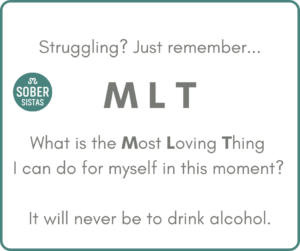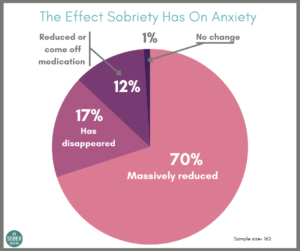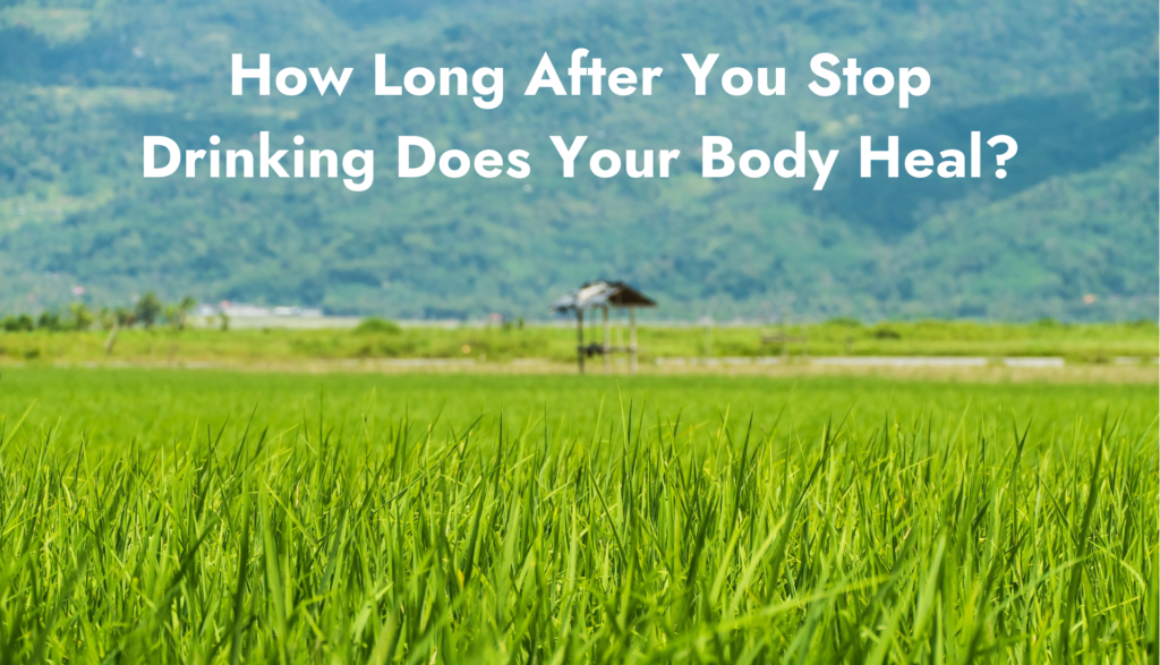How Long After You Stop Drinking Does Your Body Heal?
When you are considering giving up alcohol it’s important to know how your body will react and how long it will take to heal. Below is generally what happens when you stop drinking.
Is it the same for everyone?
It’s important to note that any of the symptoms and improvements I’ve listed below can, and likely will be, different for each individual woman. The changes you experience will differ depending on the amount you’ve been drinking, your own physiology, what medications you take and any number of environmental factors.
No matter what your circumstances are, it’s imperative you contact your doctor who will be able to advise you. You can also get information about giving up here: NHS – https://www.nhs.uk/live-well/alcohol-support/
The following information has been gathered from a number of different sources that are referenced below but I have also added my own observations based on my experience of working with women since 2017.
Is this for alcoholics?
I do not work with alcoholics as I was never an alcoholic and have no experience in supporting women through recovery. The information below is intended as a guide for women who feel they are drinking too much and would like to stop drinking and change their relationship with alcohol and themselves.
Does WHY matter?
Before you stop drinking, it’s important to know why you’re doing it. It can be very counterproductive to embark on a spell of sobriety in a state of fury at yourself and alcohol and spend the next few months angrily pushing it out of your life. It won’t work and eventually you will run out of willpower.
It’s much more powerful to give up when you are clear about what you want to achieve from your sobriety. Detailing what changes you want to see in your life and heading towards those goals is an entirely more positive and successful way of letting alcohol go from your life.
When you’re ready take some time to write out what you believe life will be like when you’ve stopped drinking.
If your imagination is a bit dulled at the moment you can listen to my 15 minute Future You Guided Visualisation which will help you get the clarity you need. Your mind will never imagine anything you can’t achieve so allow your imagination to let loose so that you can get excited about your sober future. Once you’ve finished listening, write down what your life will be like and you can refer back to this when you have those wobbly moments. LISTEN HERE.
What happens when I stop drinking?
If you are drinking a bottle of wine a night or less, like most Sobersistas, you are likely to experience the following:
1 to 12 hours
You will experience the onset of withdrawal symptoms which may include hand tremors, retching, excessive sweating, restlessness and anxiety. This is what we know as a hangover.
An hour after your last drink, your liver starts working overtime. Your pancreas also starts producing extra insulin, which causes intense carb cravings.
12 to 24 Hours
Blood sugar normalises. You will also be dehydrated. Withdrawal symptoms continue. Alcohol cravings, reduced energy and feeling low or depressed are common. Sleep is likely to be disturbed.
48 to 72 Hours
The alcohol is now out of your body, however, you may still experience headaches, lethargy and tiredness depending on how much you were drinking. The longer you stay sober the more any symptoms will disappear and become more manageable. You may even begin to feel more like yourself.
1 Week
You are likely to have more energy and feel more clear-minded. You may be sleeping better but for some women this can take longer to improve. Your skin will improve and your eyes will be brighter, particularly if you have kept yourself well hydrated.
2 Weeks
You may look and feel less bloated and might even notice a bit of weight loss. However, many women turn to sugar at this point to replace the sugar that is missing from their bodies. This article, written by nutritionist, Nathalie Sansonetti will explain how to deal with the sugar cravings successfully. READ IT HERE
Those whose livers have not been badly damaged by drinking but have become ‘fatty’ can start showing signs of improvement.
At this point many women begin to struggle with triggers and cravings. If you have been drinking alcohol for many years, it will have become a well embedded habit that will need to be managed. It’s important to replace your drinking habit with new habits that make you feel nurtured and nourished so that you don’t feel the loss of drinking.
Physically, the worst should be behind you but don’t forget that if you’ve been drinking for many years so your body can’t heal overnight. This means you may have mood swings, anxiety or feel low for no reason that you can easily identify. Be confident in the fact that you are on the right path to healing your body and to be as kind and patient with yourself as you possibly can be.
In Sobersistas we use 3 letters – MLT – to help remind us how to decide what to do when we crave alcohol.

1 Month
At this stage your body will be making great progress at healing itself and you are likely to be able to see the benefits for yourself. Your sleep should have improved by now, your skin will look better and, if you did a before and after pic, you will notice a huge difference in your eyes. I always think it’s the eyes that show the most dramatic difference. There seems to be a light behind them that you couldn’t see when you have alcohol in your body.
You should also be seeing these physical improvements:
- Decreased liver fat levels by as much as 20%
- Lower levels of bad cholesterol
- Improved concentration
- Improved blood glucose levels
Mentally you will be feeling so much more positive and in control. At this point it is really important to start to create the life you want to continue to live. Without setting goals and making these important changes you will find that it will be really easy for alcohol to fill the vacuum it created when you stopped drinking.
Drinking alcohol takes up a huge amount of <<<time and money>>> and if you try and continue to live the same life you were living without taking advantage of the gift you have given yourself, the chances are high that you will go back to drinking.
You can get your free downloadable My Sober Year here which will help you let go of the impact that alcohol has had on your life over the past 12 months and help you get clear about where you are going. DOWNLOAD HERE
If you have spent the month actively managing your triggers and cravings you should notice that they aren’t that much of a problem any more.
3 Months
By three months you will be feeling physically so much better and will recognise how much more energy you have. Your liver will have continued to heal and any sleep problems should have been resolved by now. You will be enjoying many other health benefits of improved sleep too.
Alcohol causes anxiety so any anxiousness you were experiencing as a drinker will have either reduced or disappeared by now. I did a poll in my group to ask long term sober women what there experience with anxiety was. I was astonished to see 99% of those who responded reported a massive reduction or disappearance of anxiety.

You will more than likely be enjoying a new routine and not spending too much time thinking about alcohol.
From an emotional perspective this can be a danger time. There can often be a sense of over-confidence, a feeling of ‘I’ve got this’ which can often lead to an attempt at moderation. It’s important therefore, to do the mindset work to ensure you have changed your mind about alcohol and its role in your life.
If you still have many days when you feel you are fighting alcohol off, you’re likely to feel emotionally exhausted and it’s important now to really get to grips with who you are without alcohol and who you plan on being in the future.
TIP: When you reach the point where you don’t care about alcohol one way or the other, it will be a breeze to stay sober in the long term. Try giving yourself an Ambivalence Score out of 10. If you are totally ambivalent about alcohol, i.e., you don’t care about it, your score will be 0 but if you still think, talk and fantasise about alcohol and the things you think you are missing out on your score will be 10. You can check in with your score on a regular basis to see the progress you are making.
6 months
At six months you will be able to see some significant changes in yourself. You will be experiencing overall improvements in health, reduced risk of cardiovascular disease and cancer.
At this stage you may feel strong enough emotionally to deal with any mental health issues and old traumas that led you to drinking in the first place. It’s important to be proactive about this as if these issues are left unresolved you may struggle to deal with the feelings these bring up. As alcohol has been your old coping mechanism it would be easy to fall back on it at this point.
However, you should be experiencing an improvement in self-esteem and confidence and be able to see yourself in a better and kinder light. This makes dealing with any issues so much easier.
1 Year
A year after your last drink your risk of throat, liver, and breast cancers also starts to reduce.
At your one year Soberversary you should celebrate! That’s a wonderful achievement.
By now, if you’ve embarked on some mindset work, you will know yourself better than you’ve ever done. You may also have taken up some exercise that makes you feel strong and healthy.
Is sobriety wonderful?
Stopping drinking isn’t about just not drinking alcohol. For me, it’s a lifestyle change that has the potential to change your life for the better in a million different ways. If you’re drinking at the moment it can seem unfathomable that it’s possible to live a happy life without alcohol to lubricate social situations and calm your stressed soul.
However, sober you will be the best version of you that you’ve ever been. You will be able to confidently embark on the best journey of your life knowing that you are always in control and that peace and contentment can never be found at the bottom of a bottle.
If you’re looking to give up drinking with Sobersistas support, we are a small but perfectly formed group of women just like you who know that it’s time to give up, so come and join us. Find out more here.
Much love always, Jules xxx
References – here are a list of blogs I visited while researching for this blog:
https://www.theblackberrycenter.com/what-happens-when-you-stop-drinking-a-sobriety-timeline/
https://valahealth.com/posts/2020/10/01/what-to-expect-when-you-give-up-alcohol/
https://www.byrdie.com/what-does-alcohol-do-to-your-body

